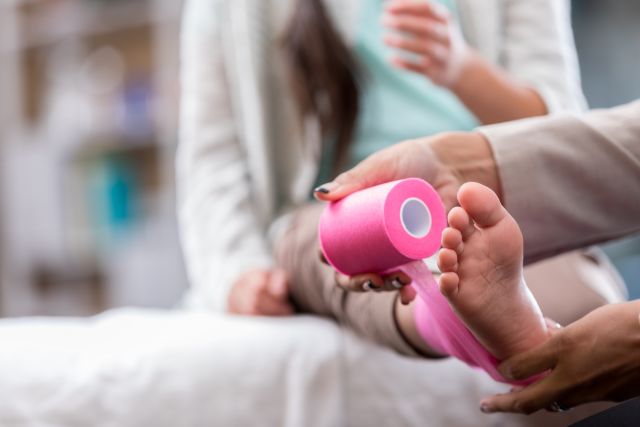Updated on July 18, 2024.
Whether it’s a bump on the head or a really bad cold, when you're hurting, all you want to do is feel better.
But where do you go for the care you need?
Next time you experience a nasty fall or think you have a serious case of the flu, use this cheat sheet. It can help you decide whether you need the emergency room, an urgent care clinic, or a trip to a regular healthcare provider (HCP).
When to go to the ER
If any of these situations apply to you, it's critical to get care as quickly as possible.
You think you’re having a heart attack. If you’re experiencing chest pain lasting for more than a few minutes, pressure or squeezing in the chest, a sense of fullness, shortness of breath, pain radiating down the arms, pain in the jaw or neck, cold sweats, nausea, dizziness or fatigue, call 911.
You’ve have a head injury. A slight bump is one thing. But if a blow to your head causes you to feel dizzy, confused, or sleepy, or to lose consciousness, dial 911. The same holds true if you vomit, faint, or have trouble seeing, walking, or talking,
You have a seizure, but haven’t been diagnosed with epilepsy. Calling 911 is recommended if a seizure lasts for more than 5 minutes, you stop breathing, or you experience a serious injury as a result. It's also advised if you have diabetes, are pregnant, have a high fever, or was hit hard on the head.
Your high fever won’t go down. A fever is a sign that your body is fighting off illness. But you should go to the ER if your fever is 105 degrees Fahrenheit or more, does not come down with treatment, and/or is accompanied by the following:
- Trouble breathing
- Sore throat or difficulty swallowing
- Leg swelling
- A bad headache
- Nausea and/or vomiting
- Confusion
- Rash
- Drowsiness
Call 911 if you have confusion or drowsiness with fever. Call 911 or go to the ER with any other symptom with a fever. These could be signs of very serious conditions.
You think you’ve broken a bone. While a scrape may not be an emergency, a deep wound or broken bone is serious. Skip the phone call to an HCP and go to the emergency room if you’ve experienced a severe break. Signs of a broken bone include immediate swelling and discoloration of the injured area, bruising, not being able to put weight on it, or the bone looking misshapen or out of place. Call 911 immediately if there’s a suspected broken bone in the head, neck, back, hip, pelvis, or upper leg. Also call 911 if there’s severe bleeding or the bone is coming out of the skin.
When to make a trip to urgent care
You need to be seen quickly, but it's not a crisis situation.
You’ve sprained your ankle. A twisted ankle is painful, but usually isn’t severe enough to warrant a trip to ER. Providers at your local urgent care clinic can examine your injury and determine your best course of treatment.
You need an X-ray. For sprains, strains, and less-severe fractures (such as those in the hands, wrists, feet, or ankles that do not have any of the warning signs listed above), an urgent care center can take X-rays and perform a physical exam to help determine the severity of your injury.
You’ve got a bad cold or the flu. When you’ve been sidetracked by a bad sore throat, cough, or the flu over the weekend, it can be hard to wait until your HCP's office has an opening for an appointment. Avoid the busy ER and visit urgent care when you have a severe sore throat, potential ear infection, bad cough, or fever without a rash. Urgent care HCPs can also administer flu shots and COVID vaccines.
Smart patient tip: Not every urgent care facility is the same. For example, some can take X-rays, while others cannot. Check out the urgent care centers in your area to decide which will work best for you and your family, so you’ll know where to go the next time you need help.
When to call your healthcare provider
If you’re not dealing with a life-threatening situation, and you believe you can wait to receive care until the next day or after the weekend, your best bet will be your HCP's office. They know your medical history, have records of your medications and past treatments, and will likely cost you less out-of-pocket. It’s usually safe to wait for an HCP for:
- Common colds or illnesses
- Routine tests
- Shots and vaccinations
- Health exams
When it comes to medical emergencies, each case is different. But it’s always better to be safe than sorry. If you ever have any doubts, don’t wait—head to the hospital immediately.







